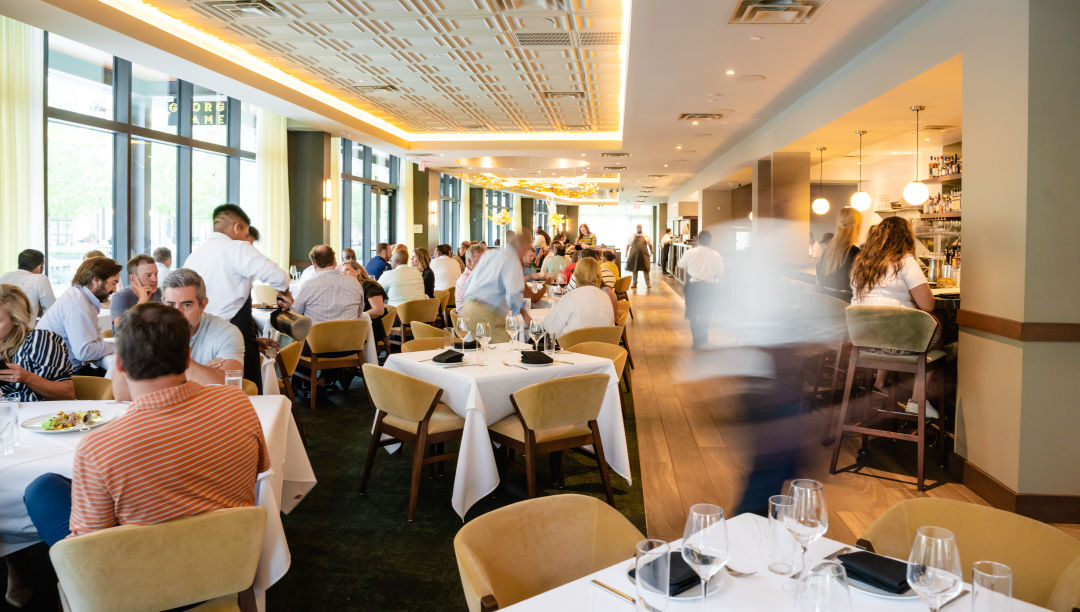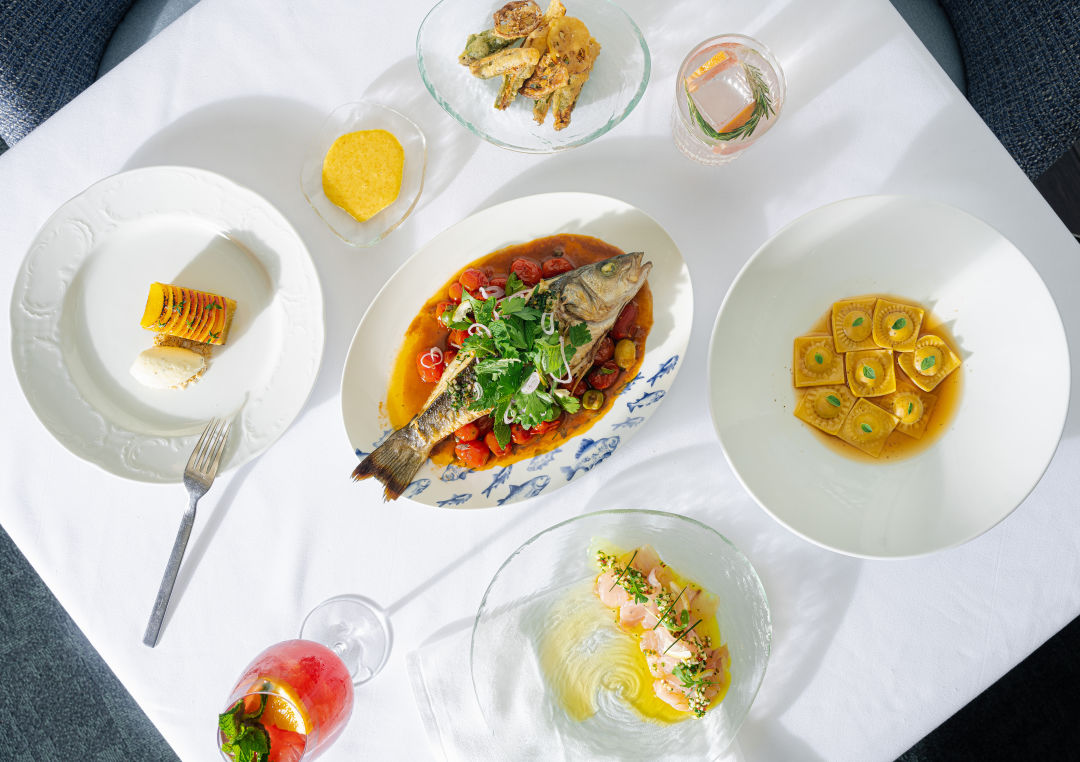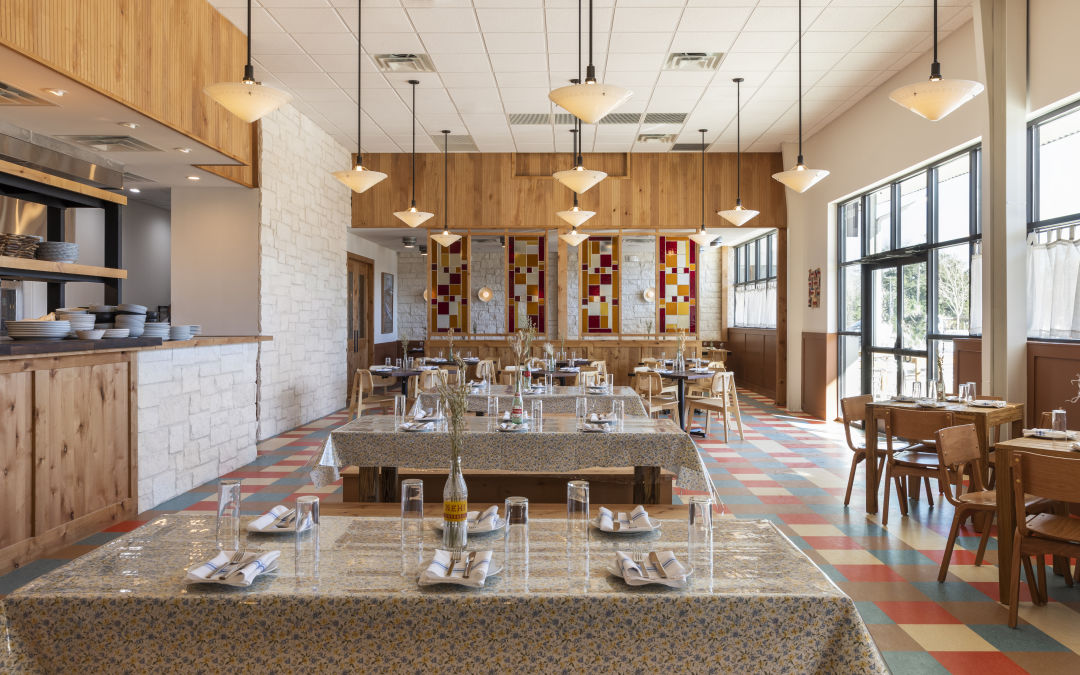How Underbelly Hospitality Is Redefining Itself Post–Chris Shepherd

Underbelly Hospitality has gone through quite a few changes over the past year.
Image: Courtesy Duc Hoang
Few Houston restaurant groups have gone through as many changes as Underbelly Hospitality over the past couple of years. The restaurant group famously split with its founder, James Beard Award–winning chef Chris Shepherd, in July 2022. Before that, the group had spent nearly a year reshuffling its restaurant lineup and closing old favorites like Hay Merchant and UB Preserv. Those involved have been tight-lipped about any behind-the-scenes turmoil, and Shepherd’s departure was handled amicably, although it did raise more questions than answers.
We caught up with Underbelly Hospitality’s president, Nina Quincy, to help answer some of our lingering questions and brief us on the hospitality group’s new direction. But first, she gave us some background on the latest news from the hospitality group, namely the opening of Pastore, the shuttering of GJ Tavern, the upcoming opening of Comalito, and Wild Oats’ impending location change.
On the opening of Pastore
In late June, Underbelly Hospitality opened Pastore, its first restaurant since the split with Shepherd (pastore means “shepherd” in Italian). The original concept for Pastore, when Shepherd was still in the saddle, was an Italian red sauce joint modeled after the final iteration of One Fifth, the hospitality group’s now-closed revolving-concept restaurant. Quincy says it was so successful that they decided to turn it into its own thing. In April 2022, however, the team determined that a red sauce spot wasn’t right for the space next to Georgia James, and the project was scrapped.

In late June, Underbelly Hospitality opened Pastore, its first restaurant since the split with Chris Shepherd.
Image: Courtesy Duc Hoang
Since a growing number of Italian restaurants had opened in Houston since they initially had the idea for Pastore—from Trattoria Sofia to Marmo and Il Bracco to Louie’s—the hospitality group morphed the concept into a place that would be home to lighter, coastal Italian fare with a focus on seafood and crudo. “Georgia James is right next door and has heavy foods, steaks, and masculine energy,” Quincy says. “We wanted to create something that was the antithesis of Georgia James, something lighter, something fresher, a place you could eat at multiple times a week.”
On the closure of GJ Tavern
Quincy joked that out of all her “children,” GJ Tavern was her favorite. “I just loved it there, I really did,” she says. “It was a small and awkward space, but it felt so good. It was cozy.” That coziness ended up being one of the leading factors in its sudden closure this July. The downtown restaurant had seating for 40 inside and another 40 outside on its rarely used patio, and the space proved to be too small for the hospitality group to bring in the money it needed to keep it in operation.
“It was just not possible for us with the way we operate to be able to operate a 40-seat restaurant,” Quincy says. “That small period of time when we would get busy, we only had a very small ability to make money. We ran on razor-thin margins.”
The hospitality group is known for providing benefits to its employees, which is rare in the restaurant industry, including medical benefits, a 401K, and paid holidays. “By the time it was all said and done, we threw everything we could at it to try to make it work, between marketing and PR, and we just couldn’t figure out a way to make it profitable without watering down what we offered and who we are,” Quincy says. “We didn’t want to compromise on either of those things.”
On the opening of Comalito and Wild Oats’ location change
In August, Underbelly announced that Wild Oats, the group’s Texas-inspired restaurant at the Houston Farmers Market, is moving to a new location in Spring Branch this fall, and that new concept Comalito will replace it in its former digs. Comalito, created in partnership with chef Luis Robledo Richards and his Mexico City–based restaurant group, Nixt, will take inspiration from Mexico City’s best taquerias for dishes such as tacos al pastor and tacos de parrilla. The restaurant will also have an in-house tortilla program featuring organic heirloom corn from Central Mexico.
Quincy said Wild Oats initially opened with a bang. “It was well received, and it was really busy,” she says. “But business started to slowly die out. We realized people would come in expecting Tex-Mex because we’re in a historically Hispanic market. We started to realize that Wild Oats didn’t necessarily make sense in that space.”

Wild Oats will move to a new location in Spring Branch this fall.
Image: Courtesy Duc Hoang
The hospitality group had already started a separate conversation with Richards about building an entirely new space in the market for a restaurant and tortilla factory, but eventually realized it would make more sense for Richards to create a concept in the Wild Oats space instead. Comalito is slated to open in late September or early October, and Wild Oats is scheduled to open in its new Spring Branch location by the first week of October.
On redefining Underbelly Hospitality
Quincy is adamant that there isn’t much to redefine since all the hospitality group’s restaurants have always had their own chefs. “Even when Chris was around, we had executive chefs at every restaurant, and they were in charge of their own menus and their own food,” Quincy says. “I think there was a misconception that Chris was in the kitchen cooking all the time, and that wasn’t the case.”
Everyone loves some good drama, Quincy says, but she adds that the restaurant group has gone on doing what it has always done: run restaurants. She says much of the day-to-day of keeping the hospitality group running has not changed.
One thing that has changed of late, however, is Underbelly’s demographics. Four of the five people in charge of the hospitality group are women, and the company has started to hire more women for management positions. It wasn’t intentional, Quincy says, just something that happened: as more women started working there, they began attracting more female talent. The general manager and the operations manager at Pastore are both women, and so is the entire bar team. It’s a trend they would like to see continue, Quincy says.
“Hospitality tends to be very male-dominated, at least culinary wise, and sometimes you end up in an echo chamber,” Quincy says. “When you bring in outside voices, more women and people of different nationalities, it starts getting better. It also gets more interesting because you have a different way of looking at things and that echo chamber starts to go away. I think that’s when some of the really cool stuff starts to happen.”
On educating the public
Quincy recognizes that the hospitality group is going to face an uphill battle as they educate the public about their concepts post-Shepxit. She says it’s not uncommon for diners to eat at one of their restaurants and comment that the food was better when Shepherd was in the kitchen. She doesn’t want to respond by arguing back, though.
“He is our history, and that’s huge for us. We don’t want to disrespect that, and we don’t want to minimize what he’s done for us as a company and what he’s done for us individually as people who have grown and learned,” Quincy says.
Instead, Quincy says the team’s response is to put their heads down and get to work. She’s hopeful that as time passes the public will realize they’re still getting the same cooking, hospitality, and service. “We believe that if we just keep doing what we’re good at, eventually everybody is going to get it,” she says.
On the future
The first and foremost goal of Underbelly Hospitality is profitability. It’s no secret that many of its concepts have closed through the years, and Quincy and her team would like to see that change. They’re also looking to eventually expand the Georgia James brand, which Quincy says is tried and true. “We know it works and people love it,” she says. They would also like to create some additional, new concepts within the next five years, but are unsure what those will be yet.
Besides its financial goals, the team also wants to do better to create a good work environment in an industry that has historically done a bad job of that, as anyone who has watched even a couple minutes of The Bear on Hulu is likely aware. Underbelly Hospitality plans on accomplishing this by paying its employees well, by taking care of their mental health, and by fostering a positive work environment.
“I think, as a whole, our industry is trying to do better, and we really want to be at the front of that. We want to do better. We want to run our company differently and to make sure every voice is heard,” Quincy says. “Our focus right now is on creating a culture that people are happy to work in, and I think we’re doing a pretty great job at that and have attracted a lot of new talent.”



